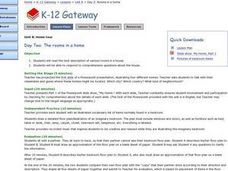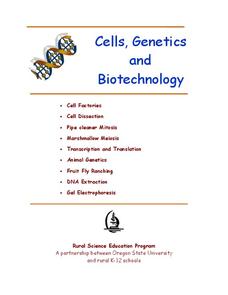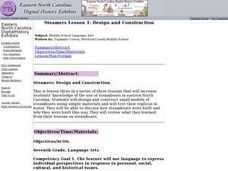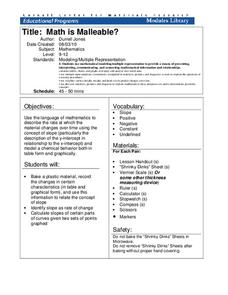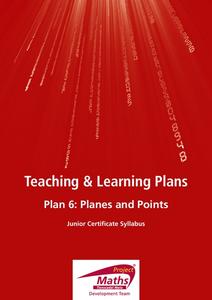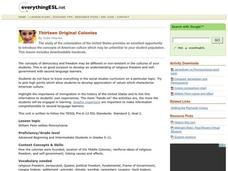Curated OER
Backyard Blitz
Students create a landscape design using shapes, colors and textures. A key is created with hyperlinks to information reports pertaining to the plants, trees and shrubs used in the design. Explore design principal utilizing a variety of...
Curated OER
Simple Machines - Graphics, Experiments, Animation
Twelfth graders display simple machines through the use of graphics, experiments, and animation. They apply problem solving and design and skills.
Curated OER
How to Make Your Own Website
Students explore technology by creating a web page on-line. In this digital arts lesson, students identify the structure needed to create a website as well as the content required to keep visitors entertained. Students collaborate in...
Curated OER
Paper Suspension Bridges: You Want Me To Go Up There?
A few class periods will be required to complete this physics investigation with your high schoolers. There is an unavailable video written into the lesson plan, but there is plenty of material here to bridge the gap. Two terrific...
Curated OER
The Rooms in a Home
Enhance your foreign language students' skills to describe a house. After reading a description of rooms in a house in their target language, they work to answer corresponding questions correctly. Additionally, they view a PowerPoint...
NASA
Decomposers Get Energy From Dead Things
When life gives you mold, make penicillin. Scholars design an inquiry experiment to determine what causes rotting and mold growth. It also covers decomposers and the important role they play for other living things.
Rural Science Education Program
Cells, Genetics, and Biotechnology
For scholars tired of reading the textbook, this unit includes nine hands-on lessons. Through group work, lab activities, experiments, and even one inquiry-based lesson, scholars apply knowledge about cells, genetics, and biotechnology....
John Hopkins University
Diets and Influence on Food Choice
From start to finish, this is a truly excellent lesson plan addressing the epidemic of diet-related disease in the United States. Learners begin with a reading excerpt of detailed information on trends in the American diet and the...
American Statistical Association
Don't Spill the Beans!
Become a bean counter. Pupils use a fun activity to design and execute an experiment to determine whether they can grab more beans with their dominant hand or non-dominant hand. They use the class data to create scatter plots and then...
Curated OER
Introducing Topographic Maps: Guiding Students from Concrete Models to Graphic Representations
Young scholars interpret topographic maps and infer human activity as it is influenced by the landscape.
National Science Teacher Association
Middle School Sampler: Science
Focus on inquiry-based learning in your science class with a series of activities designed for middle schoolers. A helpful packet samples four different texts, which include activities about predator-prey relationships, Earth's axis and...
Curated OER
Steamers Lesson 1: Design and Construction
Students examine the use of steamboats in North Carolina. In groups, they design and contruct their own small models of steamboats using simple materials. They test their models in water and share how they were built and why. They...
Science 4 Inquiry
The Classification of Living Things
It's a classification sensation! Demystify why we classify using an inquiry activity that helps your class sort things out. Groups begin by classifying a variety of shoes before they research organisms and design their own dichotomous...
Cornell University
Math Is Malleable?
Learn about polymers while playing with shrinky dinks. Young scholars create a shrinky dink design, bake it, and then record the area, volume, and thickness over time. They model the data using a graph and highlight the key features of...
Serendip
Evolution and Adaptations
Survival of the fittest isn't just for the movies! A five-part lesson explores several different species with known adaptations and analyzes them for their survival strategies. Using both video and research data, scholars draw...
NY Learns
Geography of the Fertile Crescent by ECSDM
Using Google Earth, a vocabulary assignment, and map handout, your class members will outline the Fertile Crescent in Mesopotamia and identify the source of the Tigris and Euphrates rivers. They will then complete graphic organizers...
Project Maths
Planes and Points
Build a solid foundation on which to develop future concepts. Through a guided exploration, learners compare and contrast the characteristics of points, lines, planes, rays, and segments. They measure lengths and practice notation for...
Curated OER
The Game is Afoot - A Study of Sherlock Holmes
Mystery is an exciting genre for young readers to investigate. The plots are so intriguing! Here is a series of lessons featuring Sherlock Holmes stories that invite learners to enter the world of the mystery genre. Based on what they...
Curated OER
Dos mapas de Florida, el Caribe y parte de Sur America
What can maps tell us about the past? Find out with a Spanish lesson that incorporates geography. After examining maps individually, comparing two old maps of Spanish Florida and writing notes in the provided Venn diagram, pupils pair up...
National Nanotechnology Infrastructure Network
Understanding Wave Motion - Slinky vs. Snaky: Which Spring is Dominant?
Ride the wave to an understanding of refraction! The first in a series of two inquiry-based lessons challenges learners to create transverse waves with two different types of springs. As their wave hits an object, they observe the change...
Cornell University
Glued into Science—Classifying Polymers
Explore the unique characteristics of polymers. A complete lesson begins with a presentation introducing polymers. Following the presentation, young scientists develop a laboratory plan for creating substances using polymers. They test...
Curated OER
Interpreting Algebraic Expressions
Interpreting algebraic expressions is a fundamental skill in beginning algebra. This instructional activity approaches the task in numerous ways. First, learners assess their understanding with a short worksheet on converting between...
Curated OER
Thirteen Original Colonies
An outstanding instructional activity on the Thirteen Original Colonies, and the settling of Pennsylvania by William Penn is here for your learners. Valuable discussion takes place regarding how the colonies were settled, and some...
Curated OER
Fortified Breakfast
Students reverse engineer a cereal. In this dietary lesson students identify the minerals that the human body needs to function. Students examine how foods are fortified by food engineers. Students find the amount of iron in a cereal by...






